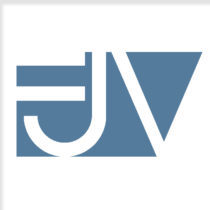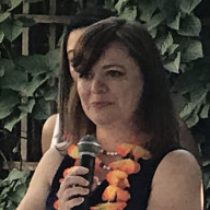Landscape Architecture for Landscape Architects › Forums › PROFESSIONAL PRACTICE › Resume Gaps: Should times of unemployment be represented on the resume?
- This topic has 1 reply, 16 voices, and was last updated 15 years, 5 months ago by
 lukad.
lukad.
-
AuthorPosts
-
December 23, 2009 at 10:06 pm #171893
 Jay SmithParticipant
Jay SmithParticipantI’m debating whether or not to show the past 18 months of unemployment on my resume. To be honest ,I’m extremely concerned of how this gap will effect my future ability to land new positions. I’m not sure if I should just list my last place of employment on my resume, or have some sort of “explanation” for the gap. I realize many employers will understand that considering the ‘great recession’, it’s not so bad, but I still feel like there are a large number of employers out there who will not look at a long employment gap so favorably.
How is anyone else handling this issue? And are you worried about it?
December 23, 2009 at 11:06 pm #171925 lukadParticipant
lukadParticipantHmm. Well for one, how do you expect to represent this gap? I would never put “Unemployed April 2009-Present” on a resume. However, if an employer can connect the dots and ask you about it then hopefully you have a story to tell. Maybe you’ve done work in some form of community design collaborative, sat in as a juror for a landscape architecture studio, or even taken some webinars for cad, photoshop, or any relevant software to the field. In short, I wouldn’t point it out to an employer. But if they inquire about it then hopefully you’ll have an answer that shows that even though you like many, many others in this and other fields were hurt by the recession, you were still able to make valuable use of your time. Good luck
December 24, 2009 at 3:52 am #171924 Chad CrutcherParticipant
Chad CrutcherParticipantJay,
The best option is simply to be honest. Did you have any sort of job during that time? I don’t know how old you are but will assume you were not hangin’ out at your parent’s house. If your talents are good and you’ve kept them sharp and up to date, just keep trying. Anything less than honesty will be smoked out by your interviewer. Careers are long and swing up and down. Anybody with time under their belt will understand.
Do well doing good,
ChadDecember 24, 2009 at 12:16 pm #171923Nic Wurzbacher
ParticipantYou think the firm interviewing you wasn’t affected by the recession.It has touched everyone. Be honest and hopefully you did something worthwhile with your time to improve your skills or expand your education,if you didn’t then you should be worried.
NicDecember 24, 2009 at 4:23 pm #171922 Jay SmithParticipant
Jay SmithParticipant“Well for one, how do you expect to represent this gap? I would never put “Unemployed April 2009-Present” on a resume”.
I just don’t want a potential employer to ‘read into’ the gap too much. I’m thinking if I up front the situation and some how list a few activities, either on the resume or cover letter, that I have been doing during this time, then perhaps they won’t assume the worst and toss my application before talking to me. I figure as many people on this board are out of work, surely someone roaming this board has pondered this situation as well.
To be honest, I’m not sure why resume gaps are looked upon so negatively by employers. If an applicant has a solid work history and education with good references, then it shouldn’t make a difference.
December 26, 2009 at 5:00 am #171921 Jay SmithParticipant
Jay SmithParticipantWell that really doesn’t answer the original question Nick. Without posting a lot of personal information about my situation on a public forum, I will say that I’ve been busy with a variety of things, some related to L.A., some not. But difficult to summarize on a resume. The question is, are people who have been out of work a long time during this recession placing these ‘filler’ items into their cover or resume, or some sort of brief explanation perhaps, rather than having the employer ‘assume the worst’ (as you just did) about that long period of time without a paycheck.
This thread really wasn’t intended to be a what you should do during a recession thread, but rather a how do you best represent a difficult time thread.
I actually get quite a range of opinions on this from other sources. Most people seem to think, considering this recession, that most employers will understand. The people that don’t understand, are assuming the worst without getting all the details. Those are the employers that concern me, whom I feel I need to upfront the situation with some how.
December 26, 2009 at 5:39 am #171920 Frank VarroParticipant
Frank VarroParticipantWithout knowing the specifics of what you were doing it is a little tough to say how I would state it in your shoes, however, I would try to think of whatever things you worked on that had some relevant experience, and call those out. Even if it was being a handy man, list that, and mention any ways in which it has potential to make you a better employee/design (Self employed, working one on one with clients, installed patios, increasing my knowledge of installation methods…” however it works best.
I include my time working at Best buy (Sales, customer relations, dealing with unhappy customers, future leaders program that gave me experience and training for supervisor roles), and my blog (Tutorials on photoshop/sketchup techniques, and discussions of tech issues important to designers). Try to impart somehow that you weren’t just sitting at home, but did something to try to make you (as cheesy as this sounds) a better you.
Overall, I would say now, more than anytime in the last 30-40 years, employers will understand an employment gap, and some may even understand if you didn’t get anything related to the field at any point. But those who have made some headway in making themselves a better designer will have a slight leg up.
December 26, 2009 at 5:53 am #171919 Jay SmithParticipant
Jay SmithParticipantThanks Frank, I agree with you. And I think once I’m able to sit down face to face with an employer that I’ll be able to satisfactorily explain my gap and the things I’ve done during that time. I’m just trying to figure out if its better to explain this gap in some fashion on the cover letter and/or resume, or wait to do it in person. The problem obviously being, some people might jump to conclusions if they see that gap with no explanation. Thanks for the post.
December 26, 2009 at 9:05 am #171918 BoilerplaterParticipant
BoilerplaterParticipantAny of you happen to notice the posting for a job in Atlanta on the ALSA website? I’d link it here but the Job Board has some technical issue right now. Anyway, it had a line that was something like “If you are a landscape architect who is tired of being unemployed…” That was the first I had seen, ever, that indicated employers know there are some real bad situations now with many out of work. I’ve found myself increasingly worried about resume gaps and the fact that my last job was with a design/build firm, which is seen by some in the profession as an unwanted stepchild. I’ve been doing a lot of reading, much of it intended to apply to eventually getting LEED designation, but a lot of reading without some kind of certificate or passed exam is of dubious value to an employer. I’ve been out of work for almost 5 months, and its making me rather stir crazy. I think another aspect of the problem is that when you don’t work, you have a lot of time to think of things to worry about!
December 26, 2009 at 9:51 pm #171917 Aaron ColemanParticipant
Aaron ColemanParticipantI’ve been considering the same. I’m thinking of writing a short description of things I’ve done while unemployed. I’m still not sure what to title this time, but so far I’ve just left it off the resume. Now the time is starting to be to long and needs some kind of explanation.
December 26, 2009 at 11:13 pm #171916 Mike TupaParticipant
Mike TupaParticipantI suggest another tack. Give yourself a name, JSdesigns, or something like that and list the design-graphic-LA-construction-sales, etc. that you are doing that includes the growth and improvement of skills.
A gap in the resume can “read” several ways, most of them poorly. And, with dozens of resume to choose from a gap can read like you were playing video games while looking for work. To get in the door for an interview you need to answer what you were doing during that “gap” to improve your ability and your value to the prospective employer. Listing yourself as a self-named entity gives you the ability to spell out the growth, experience, and maturity you bring to the interview. Listing yourself as working for BestBuy tells the future employer that you have spent 40hours a week in a nonrelated design-graphic-client-construction field. You may be working 40 behind a register but you also need to be doing work to build your resume.
You may be painting, sketching, learning new software, traveling, volunteering to do graphics for a non-profit, working for a contractor, backyard flowerbed designs, or even sales at the Gap. All provide you with descriptive skill areas that your future employer will see as valuable (if put in the correct perspective). Most of that work can be listed as consultant oriented. But you have to be out there working in a field that improves your value at the interview. And your resume should be full of that experience.
Good Luck out there!.
December 27, 2009 at 12:27 am #171915 Amy VerelParticipant
Amy VerelParticipantYou might want to consider restructuring your resume into a skills-based format that highlights your strengths and achievements while honestly conveying, but de-emphasizing, the timeline of your work experience. Recruiters regularly recommend this for people with gaps or non-traditional career paths and you can find examples online. I agree with the prevailing sentiment here that employers understand the economic realities and will look beyond a gap in order to understand who you are as a designer and potential future employee. I think what’s important is that you convey your career path with positivity, excitement and no apologies, and with your gap I think a skills-oriented approach would be a good one. One thing I did is make “current position” entries for my volunteer activities with ASLA and my (unpaid) Board membership with a trade-oriented women’s organization in order to really sell that experience and convey that I was keeping busy – feel free to contact me if you want to discuss this in more detail or want me to send you a copy.
Any potential employer who is more distracted with the past, particularly these days, and unable to break from rigid, outdated & irrelevant ideas about employment gaps is, I guarantee, not someone you want to work for. I was unemployed from July to December so I know that’s hard to swallow when you just want to work, but it’s the truth. You’re worth a decent employer who sees you as a person with a future in their firm and not merely a bullet-pointed list of prior positions, so don’t worry about conforming to the expectations of those who would toss your resume on the basis of such faulty judgment.
The idea of conveying your unemployed time under an XX Designs label is certainly a good one, however I strongly disagree with Mike’s sentiment about what “Listing yourself as working for BestBuy conveys to employers,” particularly when Frank specifically highlighted the relevant and transferable business skills such experience has provided. Yes, we are designers and yes, we must always convey how we are furthering our skills and professional profiles even when our paid work is unrelated. However, people who respect hard work understand that responsible people do what needs to be done in order to pay the bills. As with those who would be unable to see past a resume gap, those who would look down their noses at unrelated or “red-headed stepchild” work in design-build are doing you a favor by not responding to your resume – they are out of touch with reality and are not worth your time. Best of luck to you – times are tough but they’re coming around!
December 27, 2009 at 2:21 am #171914 Mike TupaParticipant
Mike TupaParticipantAmy, I’ll agree with all you said. But a year behind a register or stacking products for display doesn’t say much for growth of professional skills. And as an employer I’d be looking for a progressive growth in skill, understanding and value to my office. Department store experience tells me that the prospective employee can meet basic employment skills (showing up on time, dependable, taking direction, etc) but tells nothing about their professional skill. We all do what we need to when the time comes, been there-done that. But a resume without professional skills that are current is a set asside resume. I like your suggestion of a Skill Based Resume. A search under Resume Gaps does yield a lot of suggestions.
December 27, 2009 at 3:41 am #171913 Jay SmithParticipant
Jay SmithParticipantAmy, thanks for your encouragement. I recall seeing some skill based resume samples on the net a while back, but I didn’t come across any from someone in our profession. I’ll send you a PM, I would be interested to see how you handled that.
I think you are right, in that employers who are overly concerned with employement gaps are probably not the best to work for. But I have to wonder how many of those skepticle personality-types are out there making the hiring decisions. If they were a rarity, I wouldn’t be so worried, but unfortunately not everyone shares our more rational perspective. 🙂
December 27, 2009 at 3:57 am #171912 Jay SmithParticipant
Jay SmithParticipantMike, I think that idea has some potential. I think it is possible to improve ones skills during a time like this in specific areas, but not necessarily realistic to stay current in a broader sense. In an ideal world, an employer would not look at a long time away from the profession as an automatic negative and set the resume aside. But I realize we don’t live in an ideal or fair world, so unfortunately the burden lies with the applicant in a competitive market. Also, I would think an employer would be looking at the overall body of work when considering the value an applicant brings to their office, not just the last 18 months. Anyhow, I appreciate your suggestion, it might be a good way to go.
-
AuthorPosts
- You must be logged in to reply to this topic.


